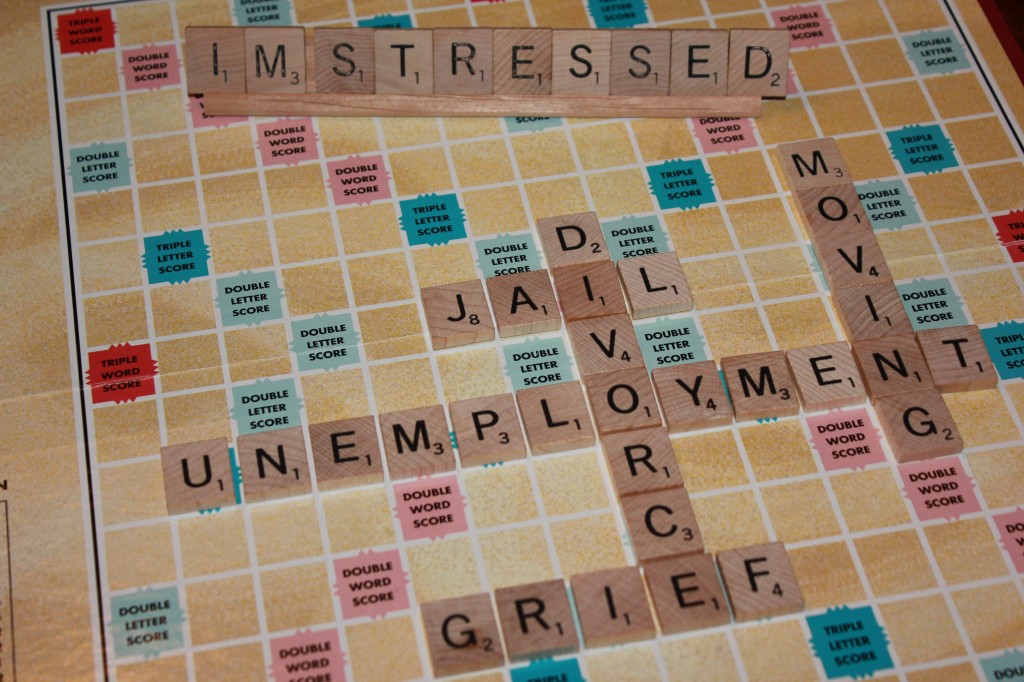Photo courtesy of Sara V.
Major transitions within our families can create stress, and lots of it. That’s how I felt when I made the exhilarating and daunting decision to go back to school after being a full time stay-at-home Mom for 12 years!
Being a counselor had been my goal since I earned my undergraduate degree. Soon after graduation I married a Naval Officer – which meant frequent moves – and when we started having children, we decided that my career plans would be put on hold.
Eventually, we reached a point where our children were school-age, and my husband was on shore duty, which allowed him to come home every night – with no deployment in sight. It seemed as if the stars had aligned and I had finally found the perfect time to go back to school and begin working towards my career goal.
I wish someone had sat me down and pointed out all of the pros and cons about the decision I had made.
I was very excited for what was going to happen in my life – becoming a student again and studying something I was passionate about.
But I was not truly prepared for the impact of going back to school full-time. I instantly went from “available 24/7 stay-at-home Mom” to “frequently out of the house and always studying Mom”.
Saying it was a bit of a challenge for my family would be like saying the Titanic had merely hit an ice cube!
Going back to school definitely has pros and cons. I would love to hear if you can relate to any of these:
The Pros of Going Back to School
- Meeting new people – meeting people with interests similar to MY interests, not just meeting other parents at my kids’ sports events or my husband’s co-workers
- Time management – I had to re-learn how to effectively manage my time to balance my studies with my responsibilities at home
- Goal setting – joy, relief and fulfillment from finally accomplishing something I had only dreamed about before
- Setting a good example for my kids – my kids quickly realized that Mommy was taking graduate school seriously and that study time and grades mattered even at MY age
- Gaining confidence – taking the GRE and applying to graduate school were very intimidating to me. Getting that acceptance letter in the mail really boosted my confidence.
- Skills for a career – I now have the degree and skills to build the career that I want
The Cons of Going Back to School
- Meeting new people – going to back to school as a non-traditional student meant that I had classmates who were in their mid-twenties and single. Even though we shared similar professional goals, we didn’t have a lot in common outside of the classroom.
- Time management – learning how to effectively manage my time was challenging (I still had to figure out how to keep up with laundry!)
- Being away from the family – I felt guilty because my kids were affected by the change – My children would ask: “Why are you going back to school, don’t you want to be my mommy anymore?” and “Why do you want a job, Daddy makes enough money for us?”
- Increased burden on the family – I felt guilty because my husband had to work harder – going back to school meant a lot of extra chores for him. Some spouses may not adjust well to those changes (I was lucky).
- Putting others second occasionally – This was a hard one because Moms seem to be hard-wired to put their families first. To be successful in graduate school, however, I had to learn that from time to time I had to put myself and my studies first. Some of the things I had to say “No” to included chaperoning a field trip or baking brownies for a weekly Boy Scout meeting. I didn’t like saying “No”, and my family didn’t like hearing “No”, but we all survived.
I was certainly naïve about the changes that my family would have to make when I went back to school, but isn’t how life is sometimes? Until you experience it you can’t really know the full impact it will have on you and the important people in your life. My stress levels fluctuated a lot during that time, but one of the major benefits to going back to school for mental health counseling was all of the “free” counseling I got from classmates and professors!
Do you have a similar story? Are you a stay-at-home parent who is thinking of going back to school? If not, what major changes are you experiencing, and how are you dealing with the stress?


